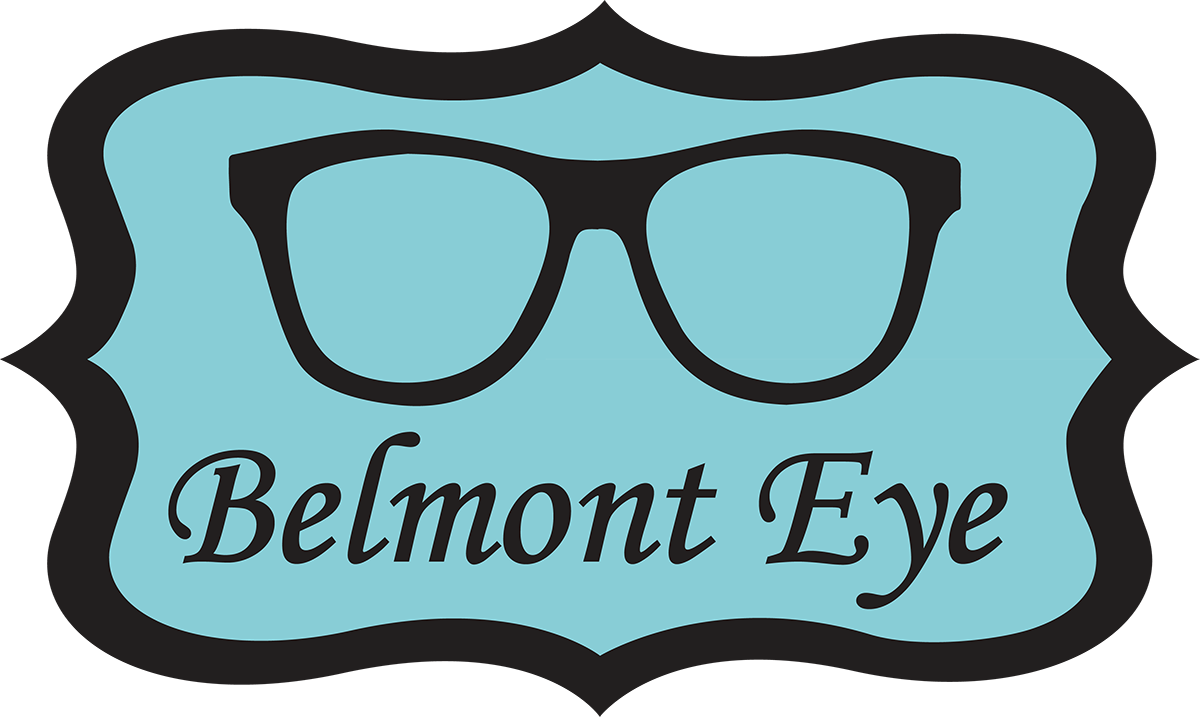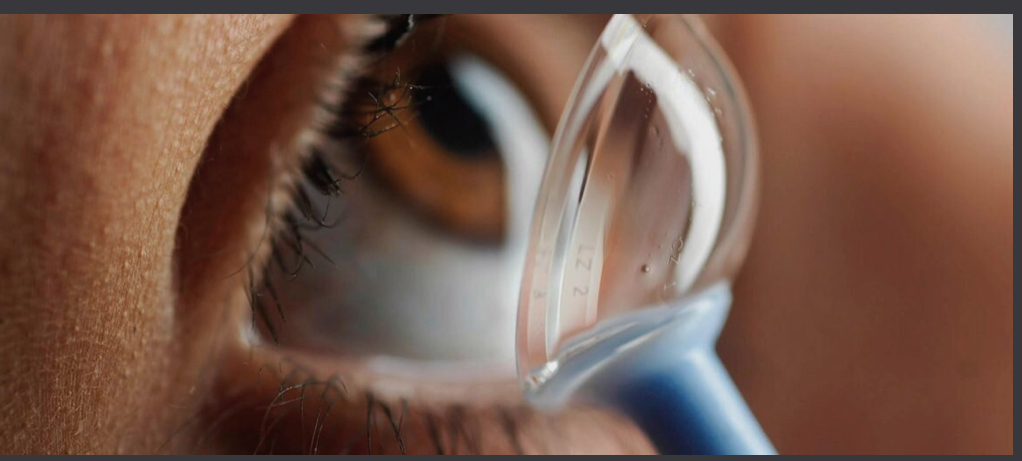Contact Lenses
Contact Lenses
Contact Lens Evaluation
Contact Lenses
Contact Lens Evaluation
A contact lens evaluation is a specific type of exam for patients who are currently wearing or considering contact lenses as part of their unique treatment plan. This evaluation is performed in addition to comprehensive eye examinations.
Contact Lenses
What To Expect
During the appointment, our provider will conduct multiple tests to evaluate your vision while using contact lenses. These tests will also help determine which type of contact lenses are most suitable for your eyes. An adequate prescription is essential to keep your eyes healthy!
Contact lenses come in a variety of sizes to accommodate fitting needs. Clear lenses are more common, but you may also request colored lenses when available. Depending on your lifestyle, our provider may recommend disposable or extended wear contact lenses.
After the evaluation, we will provide a prescription based on your results. Our team will offer a trial pair of contacts and follow up with you to ensure you have adjusted well to your prescription.
Contact Lenses
Specialty Contact Lenses
Contact lenses are not an easy solution for every person suffering from vision problems. Some eye conditions make wearing contacts a difficult proposition. However, it does not rule out wearing contact lenses altogether. It just means patients need to discuss options with their eye care provider and obtain specialized hard-to-fit contacts for their specific vision problems.
Reasons for Hard to Fit Contacts
Finding contact lenses that fit and wearing contact lenses, in general, can be made more challenging when these conditions affect your eyes:
- Astigmatism: Astigmatism develops when the front of the eye curves into a bulge or oval shape. It causes blurred vision and can be difficult to correct because regular contacts cannot account for the bulging.
- Dry Eyes: When eyes become excessively dry, it leads to irritation, burning, redness, and blurred vision. Contact lenses can exacerbate these conditions by making it feel like a foreign object is stuck in your eye.
- GPC: This form of conjunctivitis is caused by inflammation on the inner surface of the eyelid. Protein buildup on contact lenses can make this condition worse.
- Keratoconus: This is an uncommon condition that causes major discomfort when wearing contacts. Keratoconus happens when the cornea becomes thinner and allows the eye to bulge forward. The bulge forms into a cone shape.
- Presbyopia: Eyes tend to have a tougher time focusing on close objects as they age. This condition is known as presbyopia. It typically affects people aged 40 or older.
- Presbyopia: Eyes tend to have a tougher time focusing on close objects as they age. This condition is known as presbyopia. It typically affects people aged 40 or older.
Contact Lenses
Myopia Control (Paragon CRT and Misight)
RESHAPE YOUR VISION WHILE YOU SLEEP WITH ORTHOKERATOLOGY LENSES
Imagine being able to improve your eyesight and reduce your dependence on glasses or contacts without surgery. With Orthokeratology, this can be a reality for some people. Contact Belmont Eye today to learn more or schedule a consultation, 704-825-5322.
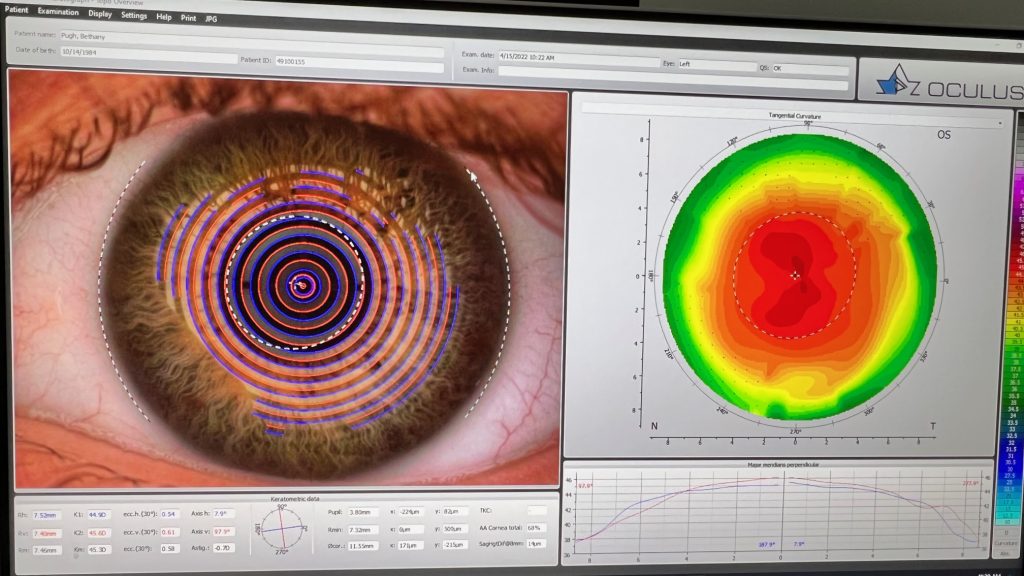
Contact Lenses
MiSight for Myopia Control
Are you concerned about your child’s vision getting worse every year? MiSight 1 Day Contact Lenses are the first and only FDA- approved soft contact lens specifically created for myopia control. ActivControl Technology provided in these lenses does more than just vision correction, it aids in slowing the progression of myopia in children. They provide much more than a typical soft contact lens. MiSight Daily lenses can be fitted as early as 8 years of age to help control a child’s vision from continuing to get worse year by year. Ask your doctor for more information on MiSight 1 Day contact lenses.
Who is a good candidate for MiSight 1 Day lenses?
- Children who are myopic (near-sighted) with a mild astigmatism in one or both eyes
- Children who have non-diseased eyes
- Children whose vision and prescription are getting worse every year
- Children who have difficulty with glasses (lose or break frequently, sports)
- Children who struggle with hard contact lenses such as OrthoK/ CRT
Contact Lenses
What Are Orthokeratology Lenses?
Unlike traditional contact lenses, orthokeratology lenses are designed to be worn overnight rather than during the day.
The principle is similar to the dental practice of wearing a retainer at night to straighten your teeth.
While you sleep, orthokeratology lenses gently and gradually reshape the surface of the eye, allowing you to see clearly without glasses or contacts during the day.
Ortho-K is approved for any age. That means we can provide vision correction with ortho-k lenses, without surgery, even for children.
WHO IS A CANDIDATE FOR ORTHOKERATOLOGY LENSES?
Adults and children who want to be free from glasses or contacts but are not candidates for refractive surgery may be candidates
Athletes and people who want natural vision for sports, recreation or other activities
Occupations that require unaided vision such as pilots and firefighters
Professionals who work in hazardous or dusty conditions and require non-prescription protective eyewear
People with allergies, dry eyes or other conditions that make contact lens use uncomfortable
Children who are myopic (nearsighted). Consistent use of ortho-K can slow or stop the progression of myopia
Orthokeratology lenses correct nearsightedness, with or without mild astigmatism by gently and safely reshaping the cornea while you sleep. When the ortho-K lenses are removed in the morning, you’ll have clear, natural vision during your waking hours. In some cases, you can see well without contact lenses or glasses for a few days but, for best results, ortho-K lenses should be worn every night.
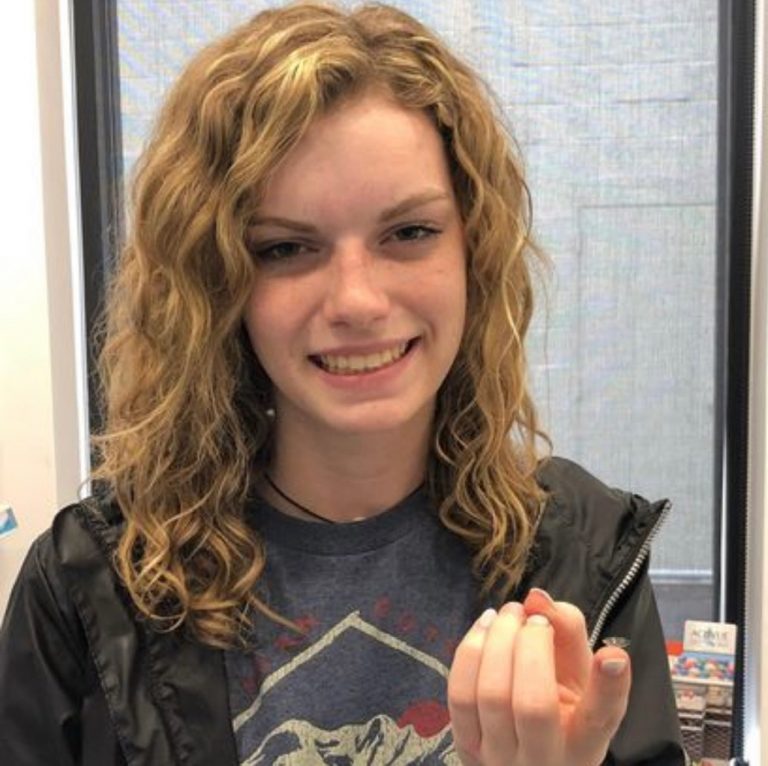
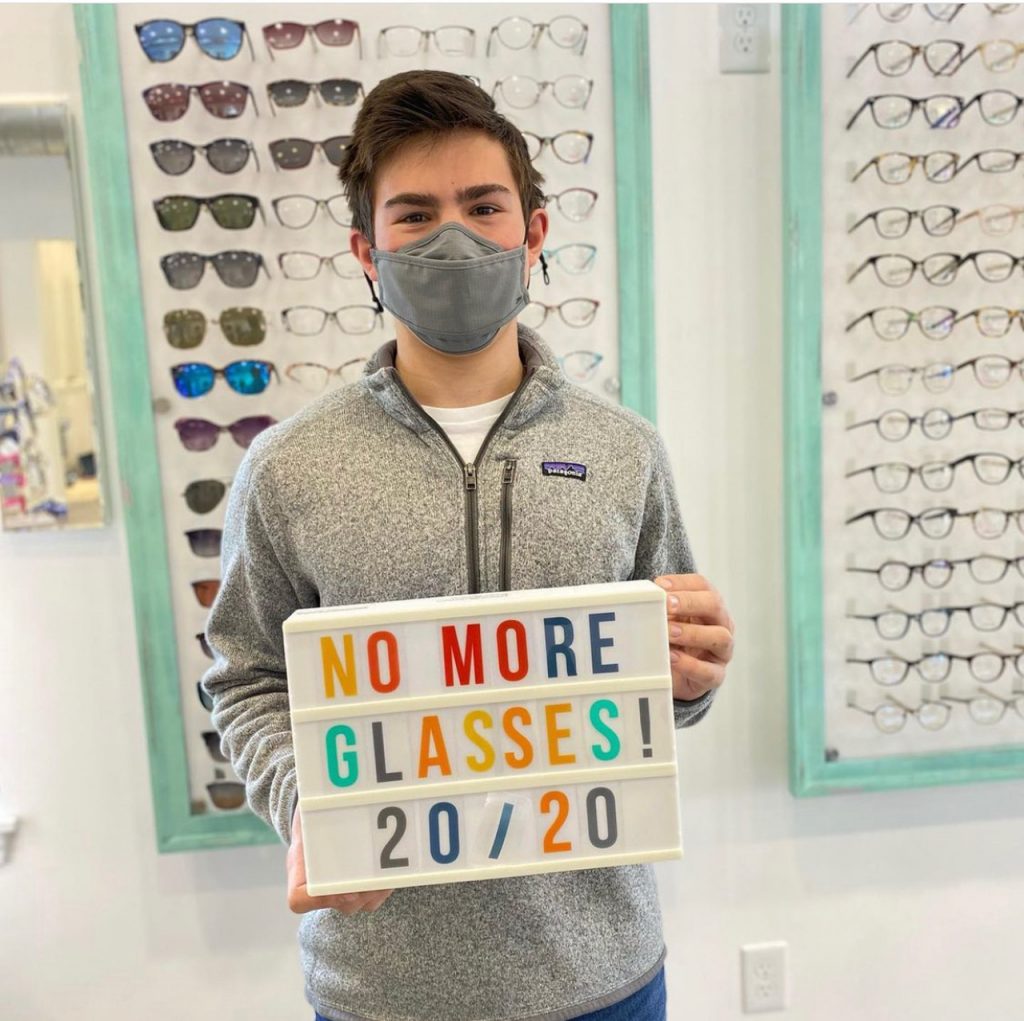
Contact Lenses
Scleral Lenses
WHAT IS A SCLERAL LENS?
A scleral lens is a specialized contact lens used to correct vision and manage a variety of eye conditions.
Scleral contacts are large-diameter gas permeable lenses specially designed to cover the entire corneal surface and rest on the white (less sensitive) part of the eye called the sclera. Because the scleral lens is rigid, it provides a smooth optical surface to improve vision.
This unique design makes the lens very comfortable to wear, all day long. These lenses eliminate blurred and distorted vision, promote healing of the ocular surface, and protect the cornea from the surrounding environment and eyelids.
Scleral lenses have several advantages over regular contacts including fit, comfort and improved visual acuity. Patients of all ages can wear scleral lenses.
WHO IS A CANDIDATE FOR SCLERAL LENSES?
If you have any of the following eye conditions, scleral lenses may be an option for you.
Keratoconus – the thinning and bulging of the cornea
Corneal deformities following eye injury or eye surgeries like Lasik, RK, or corneal transplant
Severe dry eye symptoms
Nerve disorders of the eye
You are unable to comfortably wear traditional contact lenses
Contact Lenses
Solutions for Hard to Fit Contacts
Wearing contacts is not impossible if you suffer from one of the above conditions. You do need to meet with an eye care professional, however, and get prescribed contact lenses that are tailored to deal with your specific vision condition.
Gas permeable lenses are a good solution for patients who suffer from GPC or Keratoconus. A GP lens will limit protein deposits from accumulating which will reduce GPC symptoms. It is also effective in containing corneal bulging and relieving pressure on the tissue for a Keratoconus sufferer.
Toric lenses are useful for correcting astigmatism. Since the lens needs to align with the bulge it is correcting, toric lenses must not rotate in order to fit on the eye. They are typically custom-made to correct specific astigmatism. For that reason, this type of lens takes longer to make and costs more than a traditional contact lens.
Bifocal and multifocal lenses can help remedy presbyopia. Monovision lenses are another option for presbyopia. This type of lens can have one fitted for distance vision and the other for seeing close objects.
Medicated eye drops can be an effective solution for dealing with dry eyes. They will lubricate eyes enough to make contact lenses more bearable, although a punctal occlusion also must be done to plug the ducts in some extreme cases. GPC symptoms can also be lessened through medicated eye drops. They flush out protein deposits and reduce inflammation.
Give Yourself The Gift Of Clear Vision.
Schedule an appointment with your eyecare provider today.
